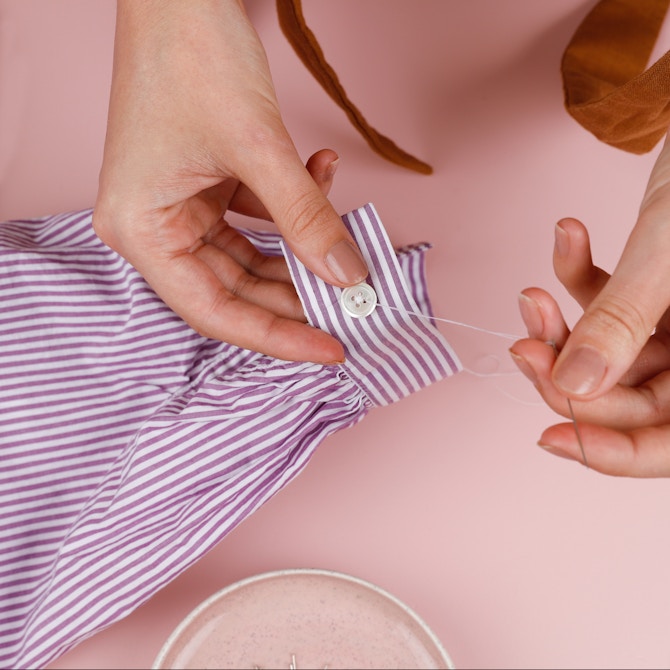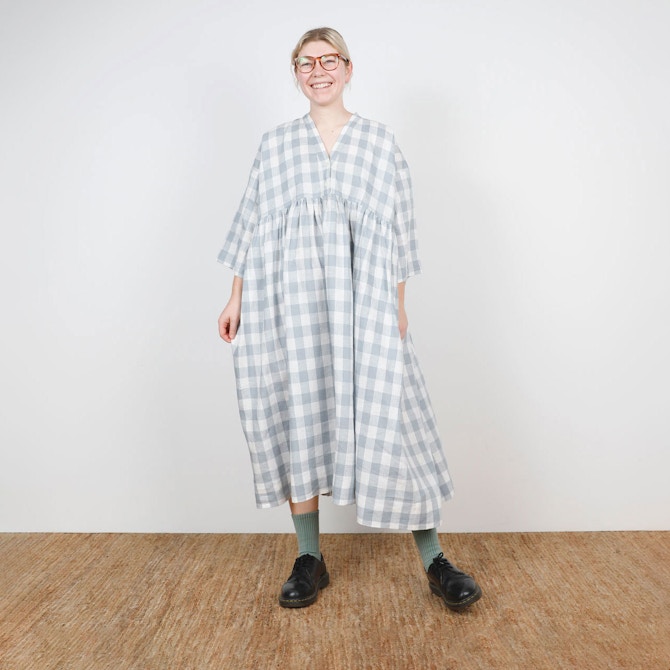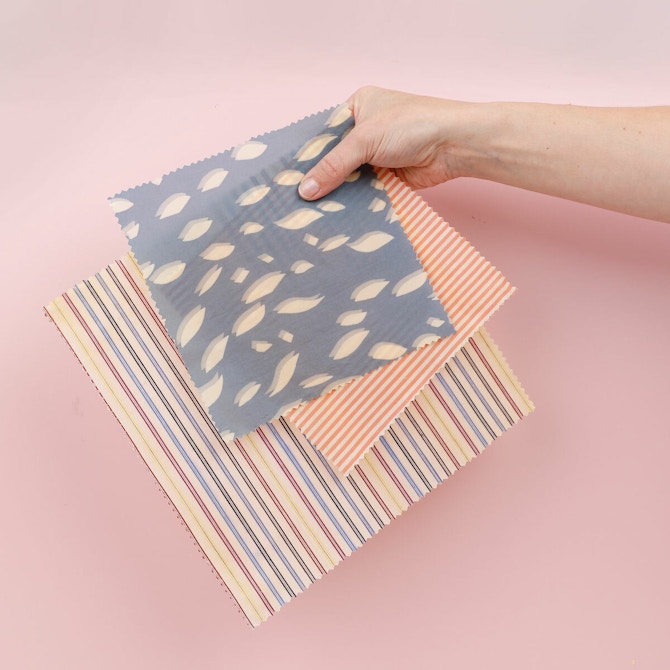Sustainability
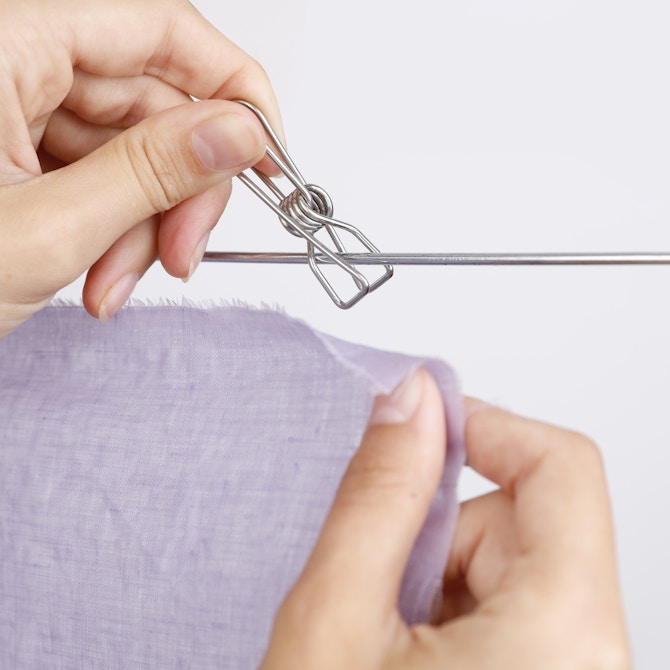
Take Care — Laundering Tips
07—June 2023
June 8th marks World Oceans Day, and we thought it was perfect timing to share some of our favourite mindful #MeMade laundering tips!
Laundry! Love it or hate it, whichever way you approach it will ultimately have an impact on the environment. From microplastic shedding, to chemical leaching and water consumption, for those keen to clean up their laundry practices, there are a myriad of steps you can take. The happy news, is that it’s never been easier to launder those precious handmade pieces whilst minimising your impact on the environment. Taking the approach that individual actions add up and have effect over time, here are a few laundering considerations from the TFS team that you might find helpful.
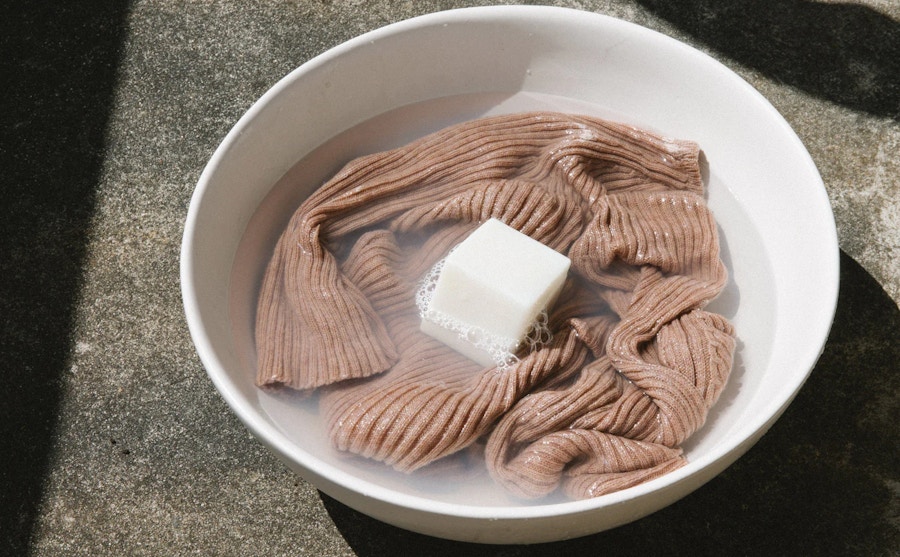
Wash less often and use cold water – it goes without saying that the more frequently you wash your clothes, the quicker they’ll start to wear out, and thus the shorter their wardrobe life span will be. To help your precious #MeMade pieces last, we encourage the use of a cold water cycle, when you do go to wash. Cold water helps remove pesky stains, as soils are released from fabrics more easily. Cold washing also helps to lower your overall energy consumption, with less used up to heat the hot water. Phew!
For further reading, check out this 2023 laundry guide from Planet Care, it makes some great pointers about water usage — "Going cold is good for the planet - and your wallet - since 90 percent of the energy the washing machine uses is to heat the water, according to the Environmental Protection Agency".


It’s no secret that many detergents and softeners can be harmful to both the environment and your health. Read up on detergent types and pick something gentle. Skip the brighteners, heavy fragrances and bleaches, and aim for refillable bottles if you can! Look for a laundry soap that is made with naturally derived, plant-based ingredients and if it’s scented, look for fragrances made with pure essential oils rather than synthetic ones. We love natural detergrents from local brands like ecostore and Green Goddess here in Australasia, and nothing beats little luxe laundry bar from Sphaera for handwashing.
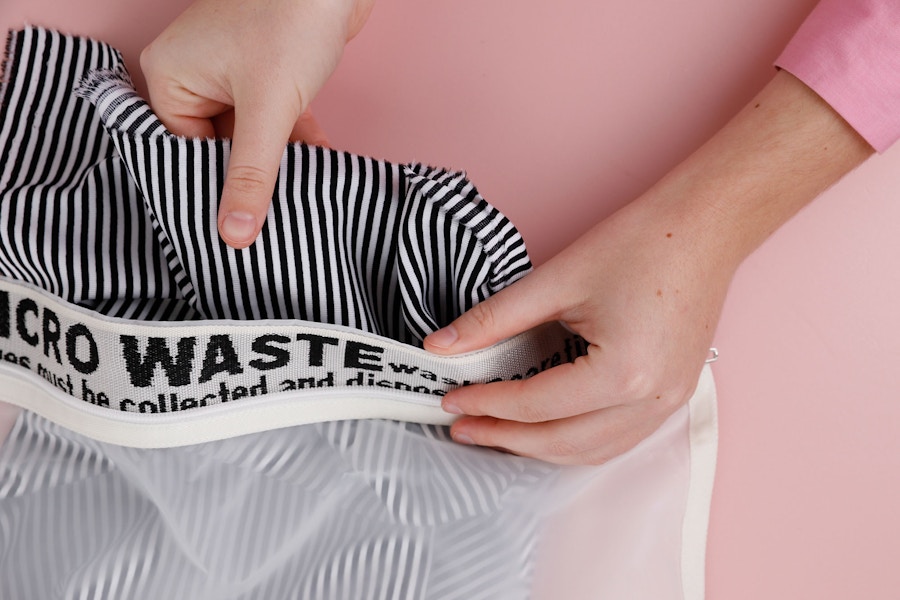
Countless teeny tiny plastic fibres from the synthetic components in our textiles are making their way from your washing machine at home, into our rivers and oceans, with every load of laundry. Upon arrival out in the wild, these microfibres attract bacteria and pollutants, and are consumed by aquatic creatures, resulting in numerous problems that then work their way back up the food chain. One handy way to limit microfibre shedding, is to consider the use of a guppy washing bag. Guppy bags might look a little bit like a delicates bag, only they help to stop microfibres from releasing from your clothing into the water during your laundry cycle. We like this version here from Guppyfriend, which you can get from loads of stockists such as Stitch Kitchen and Refillery. If you'd like to learn more about microfibre pollution, there is loads of information available online! We found this Patagonia article here a super informative read, and visual learners can watch this short film here.
Over on Instagram this week, we've got three Guppyfriend bags up for grabs! Head over and get yourself in the draw, entries close midnight June 8th NSZT.

Nothing beats a gentle breeze in the outdoors for drying clothing the natural way! Using a clothesline instead of a dryer will not only save you energy costs (dryers use a lot!), but air drying will also help to ensure your garments last longer too, by minimising harmful damage from overheating. An added bonus of line drying, is that those beautiful colours in your natural fibre garments will last longer and fade less. Be sure to line dry natural fibres in a shady spot, or where there is dappled sunlight. Turning them inside out also helps to prevent fading.
Sometimes though, there are simply no clear skies under which to dry outdoors, or you might not able to line dry where you live! Try adding a natural wool dryer ball or two to your dryer cycle. These balls are designed to replace dryer sheets and have no artificial fragrances or chemicals. They’re waste free and antimicrobial, helping to reduce your drying time and soften your clothing.

We're big fans of handwashing, and recommend to always handwash any fine and delicate fabrics. Lingerie, silks, ultra-fine wools, and specialty pieces like sequins should always be given extra special care. Handwash using cool water, just a little gentle detergent and be sure to rinse carefully. Despite the urge, never wring or twist wet handwashed clothing - simply squeeze as much water out as carefully as you can, and lay on a clean towel to dry in the shade. If you're looking for more info about caring for woollens in particular, we love this blog post from educator, activist, and blogger Ethically Kate.
We hope these tips have inspired you! Have a top laundering tip of your own that you'd love share? We're all ears! Join us over on Instagram and TikTok and share your thoughts.
